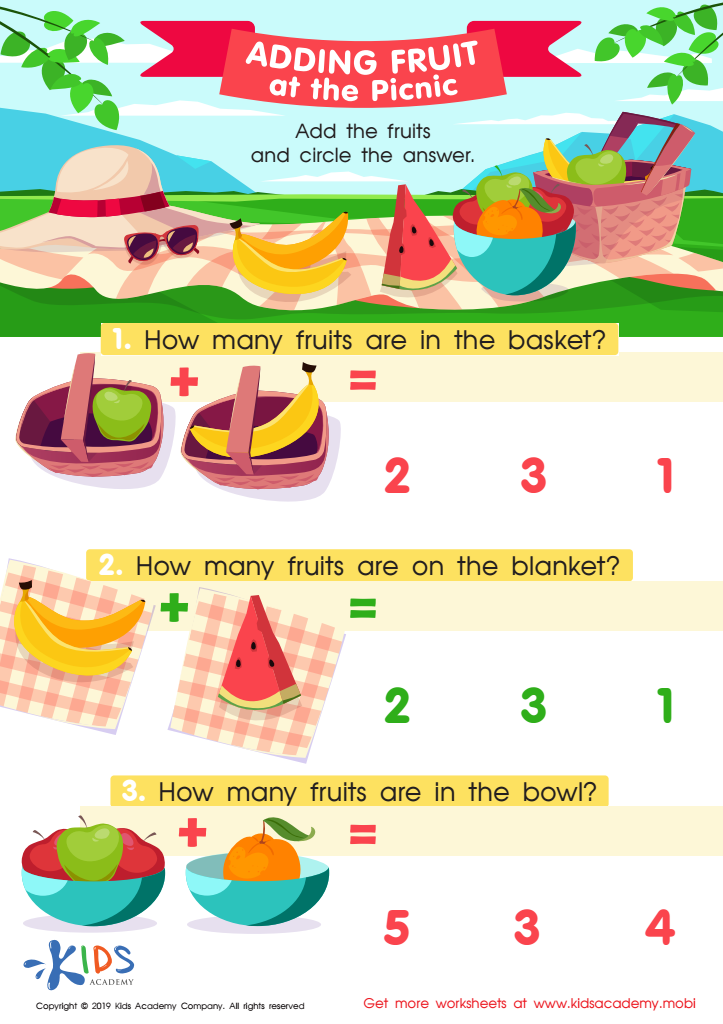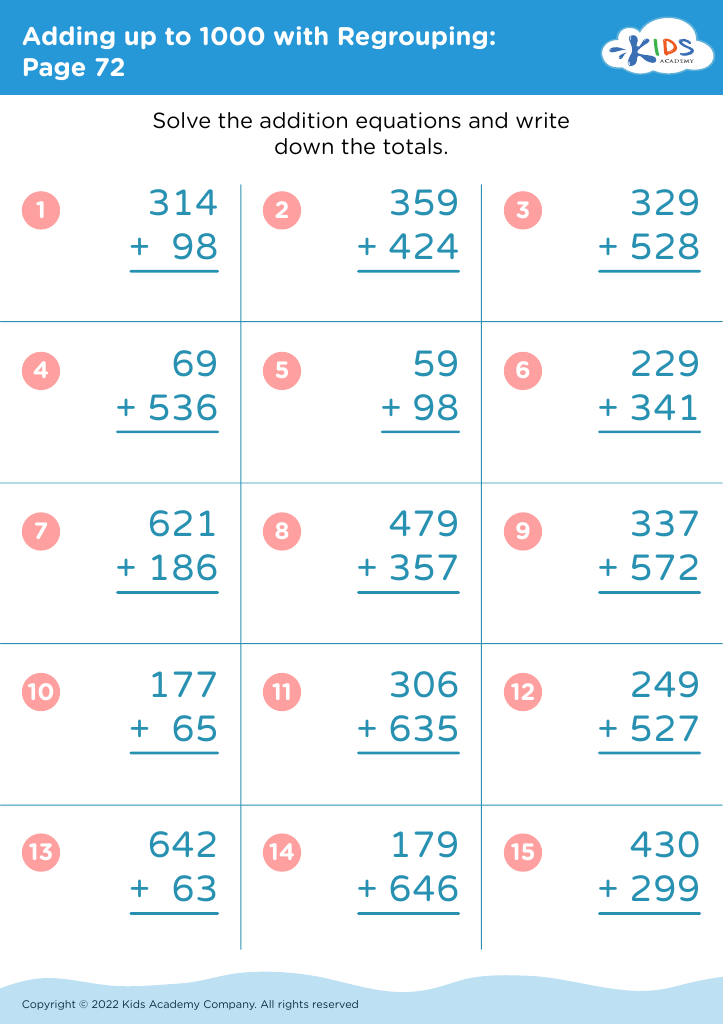Basic Mathematics Addition Worksheets for Ages 3-9
3 filtered results
-
From - To
Enhance your child's arithmetic skills with our Basic Mathematics Addition Worksheets, designed for ages 3-9. These carefully crafted printable worksheets from Kids Academy help young learners develop essential addition skills, fostering a strong mathematical foundation. Tailored for various skill levels, these sheets are perfect for both classroom and at-home practice. Through engaging exercises, children can progressively master the basics of addition, promoting confidence and a love for math. Whether you're teaching simple single-digit sums or introducing more complex problems, our worksheets offer valuable practice to support your child's educational journey. Equip your child with the tools for mathematical success today!


Adding Fruit at the Picnic Worksheet
Parents and teachers should prioritize teaching basic mathematics addition to children aged 3-9 because it forms the foundation for all higher-level math skills and overall cognitive development. During these formative years, children are particularly receptive to learning new concepts, and developing a strong understanding of addition sets the stage for future success in math, science, and daily life.
Early exposure to addition helps children develop critical problem-solving skills and logical thinking.Moreover learning basic math fosters confidence and a positive attitude toward learning. Consistent practice with addition enhances their ability to approach complex problems with ease as they progress through their academic journey.
Furthermore, addition is a fundamental everyday skill. Understanding how to combine quantities enables children to navigate practical tasks,such as sharing toys, comparing group sizes, or even managing simple monetary transactions.This real-world application underscores its importance beyond the classroom, embedding essential life skills in young learners.
In summary, an early emphasis on learning math addition equips children with essential cognitive tools, boosts educational attainment, and enhances day-to-day functioning. Parents and teachers play critical roles in nurturing these skills through playful engagement, consistent practice, and positive reinforcement, ensuring children build a robust foundation for lifelong learning and success.



 Assign to My Students
Assign to My Students





.jpg)















